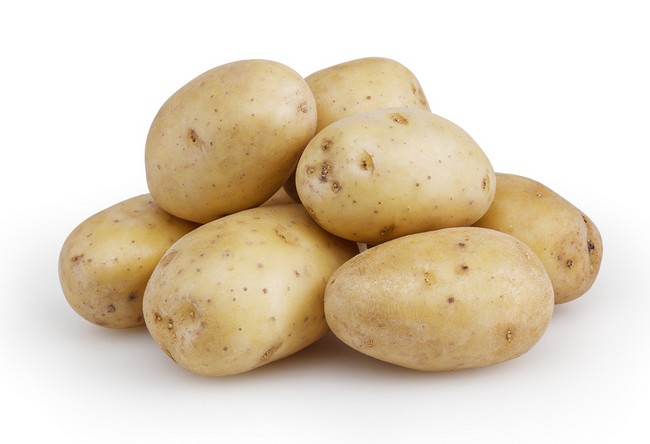- Make It Yourself Lavender Heart-Shaped Bath Bombs!
- 20 Things You Never Knew About “Down There”
- 12 Best Foods For Those Suffering From Arthritis Pain
- 12 Personal Hygiene Mistakes Almost Everyone Makes (Mom Never Told You About #4!)
- 15 Medicinal Plants And Herbs From The Cherokee People
- 12 Mind-Blowing Benefits Of Drinking Coconut Water During Pregnancy
- 12 Outstanding Winter Foods That Won’t Fatten You Up Like A Christmas Turkey
Don’t Want Cancer? Don’t Put Your Potatoes In The Fridge

Photo credit: bigstock.com
For most of us, it’s second nature to think that storing food at colder temperature is the right thing to do. Refrigeration keeps food safe to eat, doesn’t it? It turns out that the answer is a little more complicated when it comes to a vegetable that you probably eat all the time: the potato.
The Relationship Between Potatoes and Temperature
New scientific findings have established that while many foods should be kept in the refrigerator, potatoes aren’t one of them. Potatoes tend to shrivel up when kept exposed to extra-cold temperatures, making them unappealing to the eye. But what really matters is how cold affects them at the molecular level.
Potatoes contain an enzyme called invertase. When potatoes are chilled or exposed to colder-than-usual temperatures, over time the invertase enzyme will begin to break down the sucrose (sugar) molecules and break them down into glucose and fructose, two forms of sugar usable by the body for producing energy.
So far so good, right? Here’s where things get a little crazy. Those chilled potatoes can produce some harmful compounds when they’re heated up during the cooking process. The glucose and fructose from the chilled potato can combine with asparagine, an amino acid which also occurs naturally in potatoes. This reaction produces a compound called acrylamide.
Acrylamide is found in many cooked starchy foods like french fries, and is linked to the golden-brown color that many cooked starches have.
According to a report by Dr. Joseph Mercola, the Swedish National Food Authority considers acrylamide to be a “confirmed cause” of cancer, based on findings from animal studies. With humans, it’s a little more difficult to prove a definite cause-effect relationship.
A study conducted in the Netherlands produced data suggesting that there was a possible link between acrylamide consumption and an increased risk of some forms of cancer in women. The Maastricht University study involved over 62,000 women aged 55 to 69. The researchers concluded after analyzing the eating habits of these women that there was indeed a correlation between a higher dietary intake of acrylamide and an increased risk of breast cancer.
So, in light of this knowledge, how do you lower your risks? Simple: Don’t put your potatoes in the fridge! Store them loose (not in a plastic bag) in a dry place at around 50 degrees Fahrenheit, which is lower than room temperature, but still much warmer than a fridge. A cool, dark cellar or cabinet works best.
Continue to Page 2

































Tudval
May 8, 2017 at 4:13 pm
But frozen potatoes are ubiquitous, no mention of that?